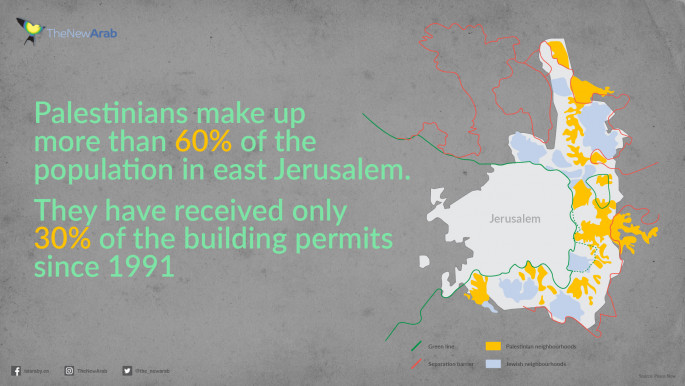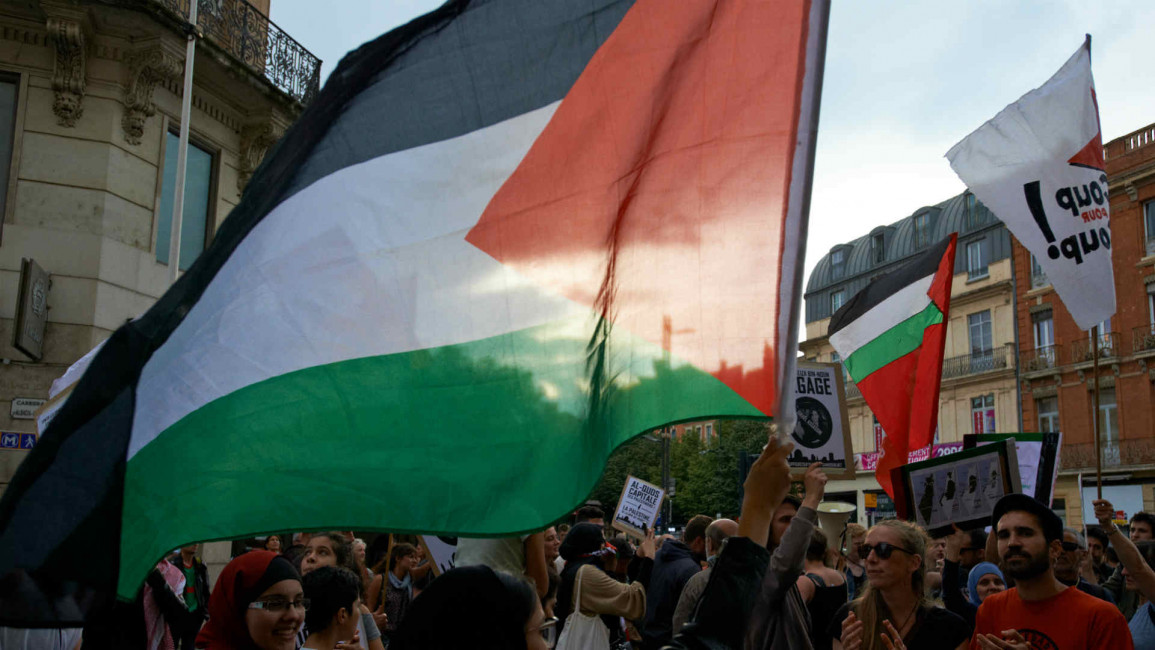EU says products from illegal Israeli settlements must be labelled
The European Court of Justice said that, under EU rules on food labelling, it must be clear where products are from so consumers can make choices based on "ethical considerations and considerations relating to the observance of international law".
The ruling comes after France's top tribunal asked for clarification of rules on labelling goods from the West Bank, including annexed East Jerusalem, which the international community considers occupied Palestinian land, as well as the Golan Heights, which Israel captured from Syria in 1967.
"Foodstuffs originating in the territories occupied by the State of Israel must bear the indication of their territory of origin, accompanied, where those foodstuffs come from an Israeli settlement within that territory, by the indication of that provenance," the ECJ in a statement announcing its decision.
The court said that labelling products as from the "State of Israel" when in fact they come from "territories... occupied by that State and subject to a limited jurisdiction of the latter, as an occupying power within the meaning of international humanitarian law" could mislead consumers.
Read also: Norway's capital Oslo bans Israeli settlement goods
The court added that the EU's 2011 regulations on labelling the origin of goods are intended to allow consumers to make "informed choices, with regard not only to health, economic, environmental and social considerations, but also to ethical considerations and considerations relating to the observance of international law".
"The court underlined in that respect that such considerations could influence consumers' purchasing decisions," the ECJ said.
On the issue of Israeli settlements, the court said "they give concrete expression to a policy of population transfer conducted by that State outside its territory, in violation of the rules of general international humanitarian law".
|
||
France published guidelines in 2016 saying products from Israeli settlements in the West Bank and Golan Heights must carry labels making their precise origin clear, but this was challenged by the Organisation Juive Europeene (European Jewish Organisation) and Psagot, a company that runs vineyards in occupied territories.
'Ruling must go further'
The secretary general of the Palestine Liberation Organisation, Saeb Erekat, welcomed the ruling but urged the EU to go further.
"Our demand is not only for the correct labelling reflecting the certificate of origin of products coming from illegal colonial settlements, but for the banning of those products from international markets."
Israel expressed fury at the decision, saying it presents a "double standard".
"The ruling's entire objective is to single out and apply a double standard against Israel," it said in a statement.
"There are over 200 ongoing territorial disputes across the world, yet the (European Court of Justice) has not rendered a single ruling related to the labelling of products originating from these territories."
A spokeswoman for the European Commission, the EU's executive arm, said the ruling did not change the bloc's "fundamental support for the security of Israel".
"The EU does not support any form of boycott or sanctions against Israel and the EU rejects attempts by the campaigns of the so-called Boycott, Divestment, Sanctions movement to isolate Israel," Mina Andreeva said.
Non-violent activism
Palestinians have for decades urged for boycotting to be a primary act of activism under an organized umbrella known as the Boycott, Divestment and Sanctions committee.
BDS is comprised of over 170 Palestinian civil society organisations, unions, and cultural and rights groups - including all major political parties, trade and academic unions - issued its official call for boycott in 2005.
The nonviolent BDS movement says it is inspired by the campaign that targeted South Africa's apartheid regime and is seeking to put an end to Israel's brutal occupation of the West Bank.
Israel sees the movement as a strategic threat and accuses it of anti-Semitism – a claim activists firmly deny, calling it an attempt to discredit them.
But BDS, which adheres to peaceful resistance, aims to pressure Israel to adhere to international law and human rights by lobbying various states, institutions and personas to understand its oppression of Palestinians and take action as a result.
The peaceful movement operates by pressuring corporations, artists and academic institutions to sever ties with Israel with supporters saying activities are aimed at promoting a Palestinian statehood.
Agencies contributed to this report.



